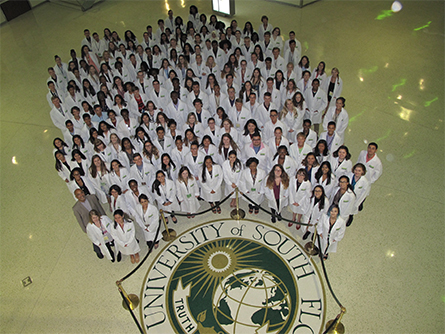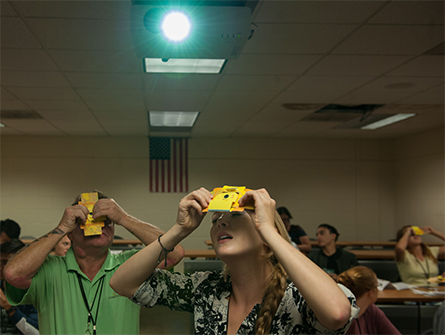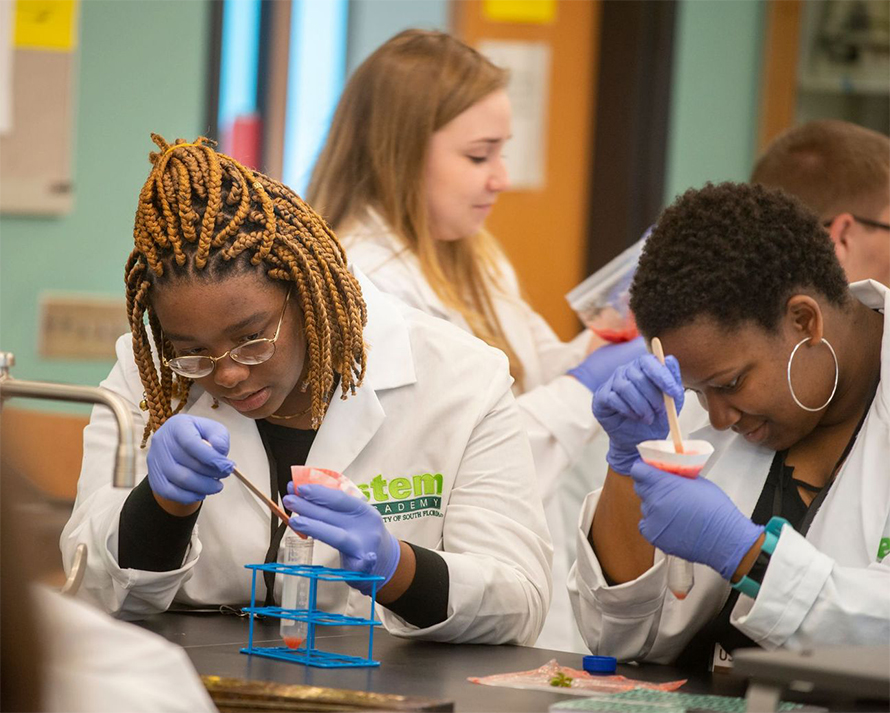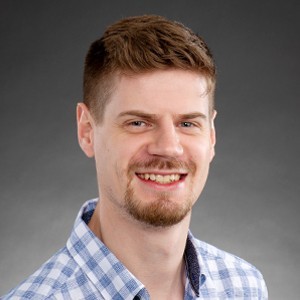The STEM Academy: A necessary remedy to med school tunnel vision
The term “premed” fascinates me. Over my six or so years in the U.S., I have come to understand it as a choice — a personal contract signed by thousands of incoming undergraduates that says, “In four years, I WILL be going to medical school.” This hypermotivated tunnel vision is comparable to that seen in many musicians, artists and athletes: “I must dedicate myself entirely to my craft. There can’t be a Plan B. There can only be a Plan A.”

The innovative program for first-year students was introduced at the university
in 2015 by biology professor Richard Pollenz and supported by the Howard Hughes
Medical Institute.
This mentality is due to what we are exposed to growing up. Pop culture makes arts and sports seem like appealing and lucrative paths. Prestige in these professions requires complete dedication and commitment. But who are the rock stars of the science world? Naturally, we turn to the caregivers and lifesavers who have a personal impact on our lives to fill this role. Even in the fictional worlds of TV shows and movies, we rarely see health care workers depicted as anything short of heroic. The past year has emphasized this as nurses, doctors and surgeons with bruised faces and weary eyes but determined smiles became the human manifestation of our fight against COVID-19.
And where does that leave researchers — those who strive to improve the world through discovery and innovation? They seem to be somewhere in the supporting cast or, if social media conspiracy theorists are to be believed, even not to be trusted.
How many 10-year-olds want to be researchers? Never mind that, how many incoming undergraduates? Students are rarely exposed to scientific research in their early college years, and that produces a net loss to the pool of potential researchers and thus to scientific advancement. Personally, I was introduced to this path by an attentive professor who could see I thrived in the lab. (The offer to move across the Atlantic to Florida for graduate school just happened to sweeten the deal.)
More emphasis must be placed on steering undergraduate science majors toward understanding that being a medical doctor is not their only option.
This was the central dogma of the STEM Academy, a program introduced at the University of South Florida in 2015 by biology professor Richard Pollenz and supported by the Howard Hughes Medical Institute. At its core, the STEM Academy was a one-week camp held before the fall semester. Incoming science, technology, engineering and mathematics undergraduates from all backgrounds were placed in groups of 24, each group under the guidance of a graduate mentor and four undergraduate mentors. Special emphasis was placed on diversity and inclusion, as those who benefit the most from such programs are those most often overlooked. Throughout this week, the students participated in exercises, lab experiments, workshops and seminars. The goals were to instill a sense of belonging to the STEM community, to expose students to the wide range of career options and paths available, and to introduce the concept of research.

I was a graduate mentor in the second iteration of the academy in 2016. Some 250 students worked with 10 grad student mentors and a slew of undergraduate mentors. The week was long — starting at 8 a.m. most mornings and usually not finishing until about 8 p.m. — and included three main components: technical development, professional development and personal growth.
Many students had their first exposure to experimental science during the technical development portion, which also covered data analysis. The experiments were lighthearted, such as extracting DNA from strawberries or distilling limonene from oranges using dry ice.

peer through foldscopes — cardboard microscopes assembled by students
in the academy.
Professional development included CV workshops, research lab tours, discussions on getting involved in undergraduate research, meetings with professionals and learning about career opportunities outside the medical field — all in a fun and engaging manner. For example, students met with a different professional every 10 minutes in “Career Speed Dating.”
These first-year college students underwent significant changes in one short week. From a professional standpoint, they now understood that their choice was not medical school or bust. We also saw emotional growth in almost all the students. They made close, potentially lifelong friends, and being in a structured environment with likeminded people pushed even the most introverted to come out of their shells. To encourage this further, the evenings were reserved primarily for reflecting on how they felt about the day’s activities and about the students’ individual experiences. We usually ended with games to decompress after a long day.
The program was structured to prioritize inclusion and camaraderie. I was consistently delighted to find that those who barely looked me in the eye on Sunday would recognize by week’s end that the academy was an opportunity to share experiences and create friendships. One evening we asked the students to explain what motivated them to enter the STEM world. One took all 300 of us on her emotional journey of coming to terms with being transgender and how that pushed her toward a medical career. Another told us how math and science became his new passion after a torn knee ligament ended his promising baseball career.

On the first and last days of the academy, we asked each student to write down five words describing how they envisioned their upcoming time as an undergraduate. I like to think there is some correlation among the words mostly chosen by the students before and after the academy. Anxieties become opportunities. Medicine becomes graduate school. People become friends.
I was a mentor for four iterations of the STEM Academy, from 2016 until my final defense in 2019. Every year I met students who reminded me that the kids really are all right, and I consider the STEM Academy the most fulfilling part of a very pleasant stint in graduate school. An added bonus came when students who started as premed realized they had a passion for research. Several even became undergraduate researchers in my lab, earning authorship on publications. Students who chose to continue on their premed path were now better equipped both to be more competitive, thanks to early experience in undergraduate research, and to view future experiences as alternative career opportunities.
The HHMI funding was for five years, so 2019 was the final year for the STEM Academy. Many of us hoped the university would see the obvious merits to continued funding of Dr. Pollenz’s program; retention rates for STEM Academy students were significantly higher than a matched comparison group, with 98% first-year retention and 92% STEM major retention. Additionally, data from the 2015 cohort showed that 68% of underrepresented minority students (Hispanic and Black) in the academy were retained in STEM compared with 49% for the matched group.
No funding came. The STEM Academy was a short-lived but wonderful program whose legacy lives on through the 1,000-plus students and mentors who experienced it and have the lab coat and memories to prove it.
While metrics such as retention can be quantified, the true effect of such a program is felt in the quality of researcher that it produces. By focusing on how students perceive research and introducing them early to basic concepts, the societal perception of science as a whole can be reimagined, and we can begin to view not just those with stethoscopes as biomedical rockstars, but also those with pipettes.

Learn more
Read about the STEM academy in these two academic papers:
Enjoy reading ASBMB Today?
Become a member to receive the print edition four times a year and the digital edition monthly.
Learn moreFeatured jobs
from the ASBMB career center
Get the latest from ASBMB Today
Enter your email address, and we’ll send you a weekly email with recent articles, interviews and more.
Latest in Opinions
Opinions highlights or most popular articles

Women’s health cannot leave rare diseases behind
A physician living with lymphangioleiomyomatosis and a basic scientist explain why patient-driven, trial-ready research is essential to turning momentum into meaningful progress.

Making my spicy brain work for me
Researcher Reid Blanchett reflects on her journey navigating mental health struggles through graduate school. She found a new path in bioinformatics, proving that science can be flexible, forgiving and full of second chances.

The tortoise wins: How slowing down saved my Ph.D.
Graduate student Amy Bounds reflects on how slowing down in the lab not only improved her relationship with work but also made her a more productive scientist.

How pediatric cataracts shaped my scientific journey
Undergraduate student Grace Jones shares how she transformed her childhood cataract diagnosis into a scientific purpose. She explores how biochemistry can bring a clearer vision to others, and how personal history can shape discovery.

Debugging my code and teaching with ChatGPT
AI tools like ChatGPT have changed the way an assistant professor teaches and does research. But, he asserts that real growth still comes from struggle, and educators must help students use AI wisely — as scaffolds, not shortcuts.

AI in the lab: The power of smarter questions
An assistant professor discusses AI's evolution from a buzzword to a trusted research partner. It helps streamline reviews, troubleshoot code, save time and spark ideas, but its success relies on combining AI with expertise and critical thinking.

